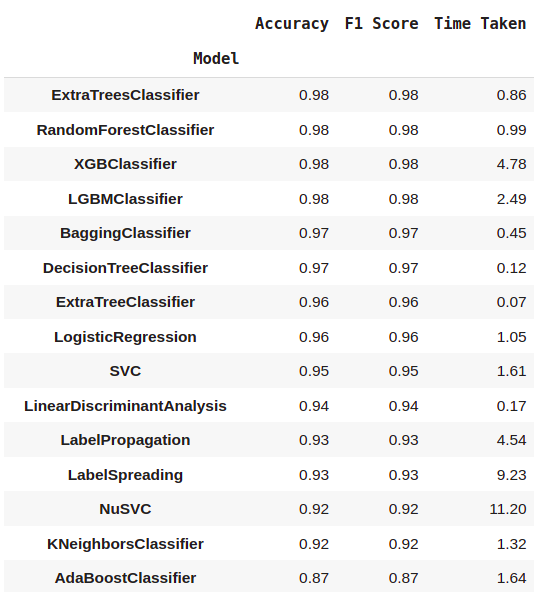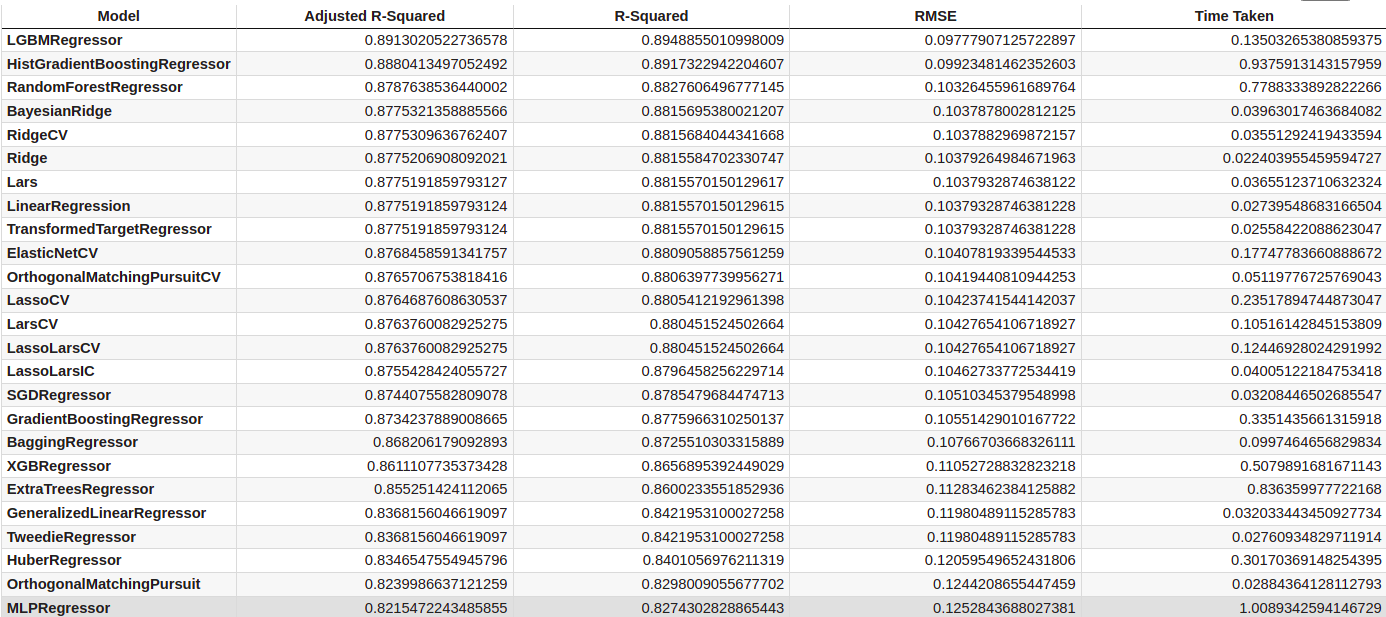Anandita Nadkarni, Yash Mate, Ming Wang, Saurabh Koshatwar, Kanish Nimesh Shah, Jonah Fisher
The goal of our project is to analysis the LASI-DAD data and learn the patterns to predict the whether a person has dementia.
- LASI-DAD is the first and only nationally representative study on late-life cognition and dementia in India.
- It is drawn from what is currently a cross-sectional sample of 4,096 community-residing older adults 60+ years of age from the larger LASI study (N ~ 70,000), which is a prospective, multi-purpose population survey, representative of both the entire country and of each state within India.
- Handled Data Imbalance using SMOTE
- Data Imputation with K Nearest Neighbors
- Correlation analysis using Pearson
- Dimensionality reduction with:
- *Removing the columns which have more than 50% missing values
- *Removing the variables which have less than 5% correlation with the target
- *Removing the variables which have more than 90% correlation with each other
- *Using SHAP and Random Forest to select 27 most important features
- Applied both classification and regression.
- Highlight methods: Random Forest
- NaN / missing values
- Imbalanced Data
- Robust to outliers
- Reduces bias and variance
- Avoids over fitting
- Highlight methods: Random Forest
- Classification

